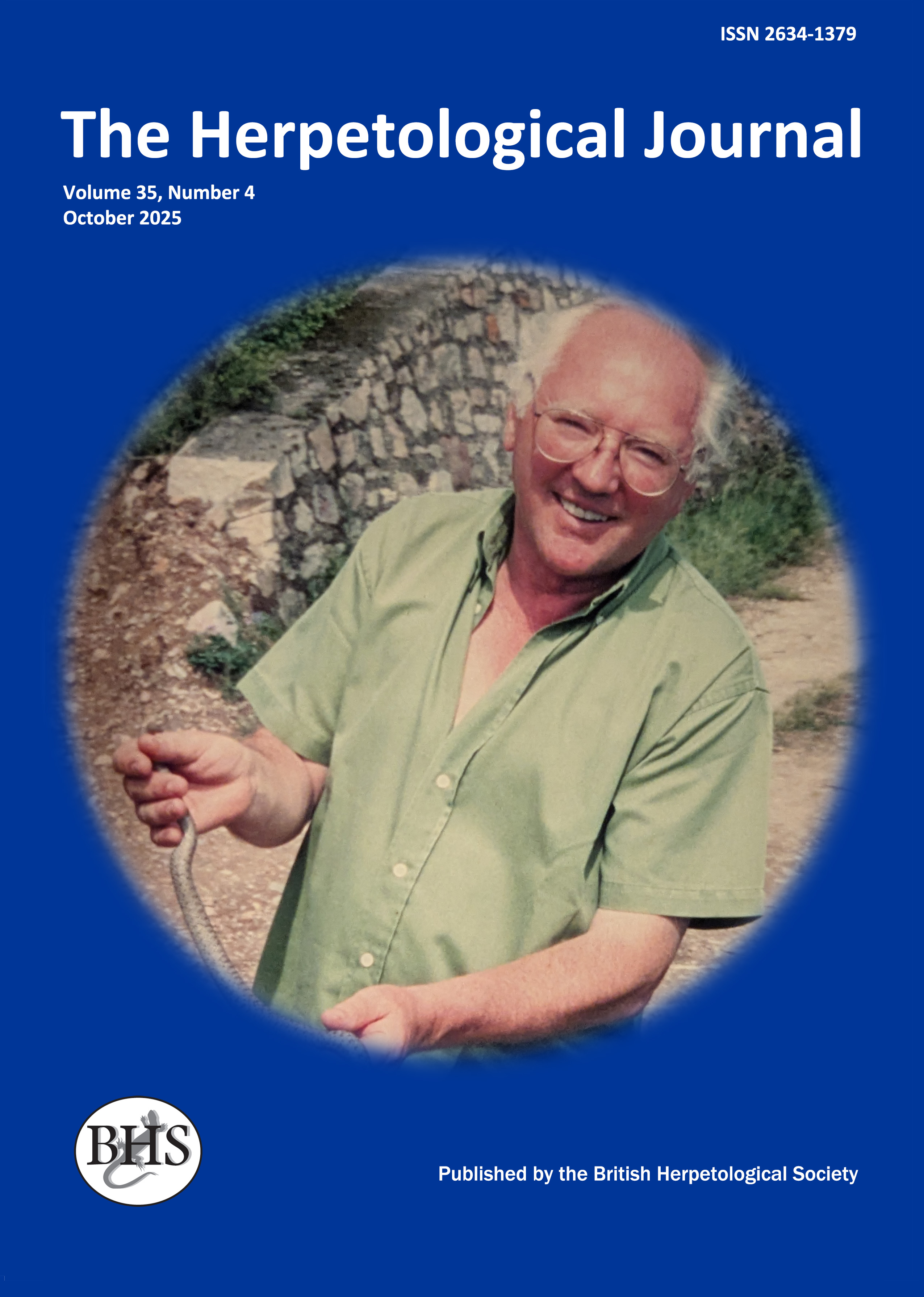
The Herpetological Journal
The Herpetological Journal is the Society's prestigious quarterly scientific journal. Articles are listed in Biological Abstracts, Current Awareness in Biological Sciences,Current Contents, Science Citation Index, and Zoological Record.
ISSN 0268-0130
2023 Impact Factor for the Herpetological Journal is 1.1, with the Journal sitting just below Quartile 2 in Zoology, at percentile 46.9
pdf 08. Batrachochytriumdendrobatidis not found in rainforest frogs along an altitudinal gradient of Papua New Guinea
1389 downloads
Open Access
pp. 183-186
Authors: Dahl, Chris; Kiatik, Ismale; Baisen, Ismale; Bronikowski, Ed; Fleischer, Robert C.; Rotzel, Nancy C.; Lock, Justin; Novotny, Vojtech; Narayan, Edward & Hero, Jean-Marc
Abstract: Batrachochytrium dendrobatidis (Bd) is a fungal pathogen often responsible for amphibian declines worldwide. We report here survey on Bd in Papua New Guinea (PNG). The survey for Bd was conducted along a rainforest altitudinal gradient from Madang (50 m a.s.l.) to Mt. Wilhelm (3700 m a.s.l.). We swabbed 249 frogs of 63 native species at nine sites to quantify the number of Bd zoospore equivalents using real-time Syber Green Polymerase Chain Reaction (qPCR). We found no evidence for Bd. The lack of Bd may be due to 1) hot climate all year round inhibiting the spread of Bd in the entire lowland areas of PNG, 2) low number of non-native amphibian introductions to PNG such as Lithobates catesbeianus or Xenopus spp. or 3) the lack of invasive introductions by humans due to geographic isolation. While it is difficult to discern between these hypotheses, an effective quarantine should be devised to protect PNG from future disease outbreak. International assistance is needed in conservation education and research to assist the local scientists in monitoring and protecting these rich fauna from future Bd outbreaks.
Keywords: CHYTRIDIOMYCOSIS, ALTITUDE, RAINFOREST, BATRACHOCHYTRIUM DENDROBATIDIS, PAPUA NEW GUINEA, AMPHIBIANS

